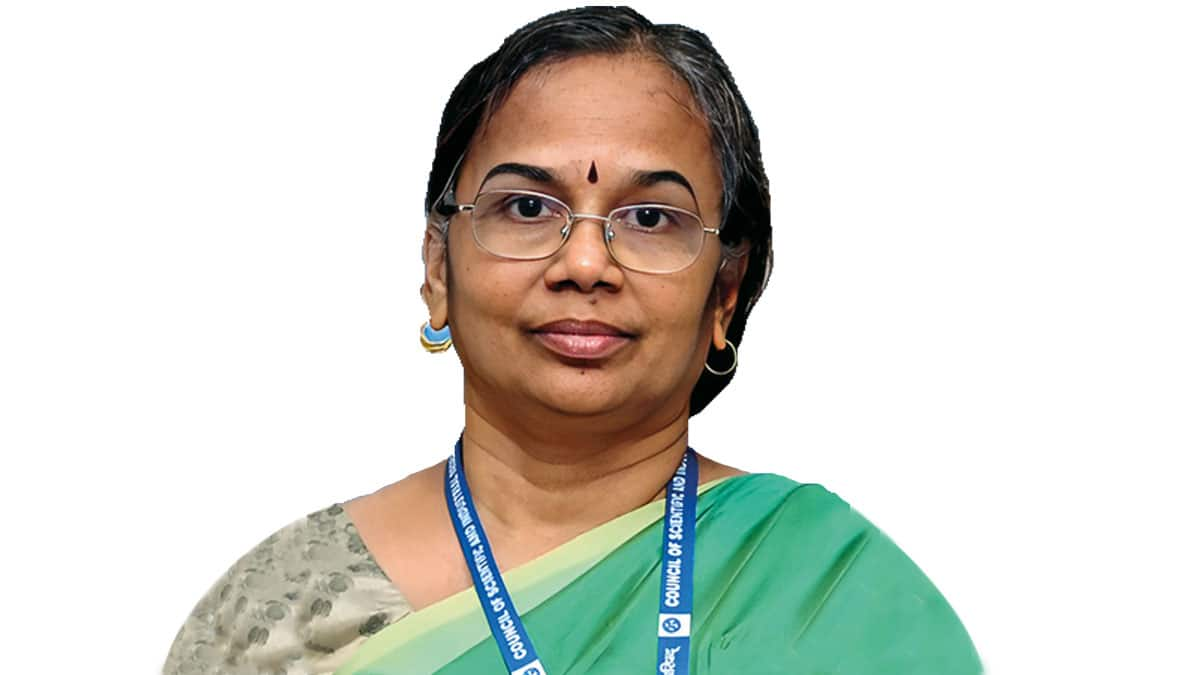CSIR DG: India’s leadership in AI, quantum tech depends on how we equip the next generation
Aeshwarya Tiwari | September 12, 2025 | 02:36 PM IST | 3 mins read
CSIR’s first woman DG on women breaking STEM barriers, how NEP is transforming education keeping research at its core, and emerging tech opportunities

N Kalaiselvi is the first woman to serve as director general of the Council of Scientific and Industrial Research (CSIR) and secretary of the Department of Scientific and Industrial Research (DSIR). During an interaction with Careers360, she spoke about her journey, NEP, emerging research areas, CSIR’s collaborations with industry and academia and new initiatives. Edited excerpts:
As the first woman DG of CSIR, what have been the most defining challenges and breakthroughs in your journey? What message do you have for young students and women in STEM?
The journey has been both humbling and inspiring. Breaking barriers in a legacy institution like CSIR came with its challenges – navigating stereotypes, driving systemic change — but the breakthroughs have been equally empowering. To young students, especially women: believe in your potential, embrace curiosity, and never let societal limits define your aspirations in STEM.
How do you envision the role of research and innovation evolving in India’s education ecosystem over the next decade, particularly in the context of NEP 2020?
The National Education Policy (NEP) 2020 as a transformative step for India's education system, with research and innovation at its core. Over the next decade, we will witness a significant shift from rote memorisation to inquiry-based learning, empowering students to think critically and engage with real-world problems.
At CSIR, we are actively contributing to this vision in its academic and research programmes. Through collaborative research, we aim to bridge the gap between academia and industry, ensuring that students are equipped with practical skills and the ability to drive innovation.
This emphasis on research and innovation will not only enhance India’s global competitiveness but also help build a knowledge-driven economy, where science and technology serve as the backbone of sustainable growth and development.
With rapid advances in AI, quantum computing, and sustainable technologies, which emerging areas should students focus on to stay at the forefront of science and innovation?
As we witness rapid advances in AI, quantum computing, and sustainable technologies, it is crucial for students to focus on emerging interdisciplinary fields. Key areas such as artificial intelligence, quantum technologies, clean energy solutions, space technologies, and biotechnology will shape the future of science and innovation.
Also read Sci-Hub ban robs scientific community of ‘breathing space’, motivation, say research scholars
At CSIR, we believe that India's leadership in these domains will depend on how well we equip and inspire the next generation of scientific minds. By nurturing talent in these fields, students can contribute to groundbreaking advancements that will drive India’s growth and position it as a global leader in technology and innovation.
Fostering expertise in these emerging areas will not only ensure that students remain at the forefront of scientific progress but also enable them to tackle some of the world’s most pressing challenges, from climate change to space exploration.
What steps is CSIR taking to enhance collaboration between academia, industry, and government?
CSIR is intensifying its efforts through mission-mode programmes, joint R&D with industry, and partnerships with academic institutions. Our aim is to ensure that every scientific idea has a pathway to real-world impact — be it through startups, technology transfers, or policy inputs.
We frequently have CSIR-Industry and CSIR-Startup events and have initiated theme-based projects that bring together researchers and industrial partners. Additionally, CSIR actively facilitates technology licensing for commercialisation, thereby bridging the lab-to-market gap.
For young researchers facing challenges with mentorship and funding, what platforms or initiatives does CSIR currently offer or plan to offer?
CSIR offers several platforms — such as the CSIR-JRF, NET, and fellowship schemes — for early-career scientists. Newer initiatives like incubation support are being designed to democratise opportunity and foster a culture of innovation at every level.
To nurture scientific curiosity from a young age, CSIR has also launched the Jigyasa programme, a student–scientist connect initiative. Through Jigyasa, school students are exposed to real research environments, helping build a strong foundation for future researchers and innovators. Together, these initiatives aim to create an inclusive ecosystem that supports talent across geographies and disciplines.
This piece first appeared in the 200th issue of the Careers360 magazine, published in August 2025
Follow us for the latest education news on colleges and universities, admission, courses, exams, research, education policies, study abroad and more..
To get in touch, write to us at news@careers360.com.
Next Story
]NAAC grades to be replaced by binary system, One Nation One Data to end multiple agency submissions: Chairman
NAAC executive committee and NETF chief Anil Sahasrabudhe talks about the hub-and-spoke research model, NIRF rankings, low participation in accreditation, KLEF row, penalties for false data, and more
Aeshwarya Tiwari